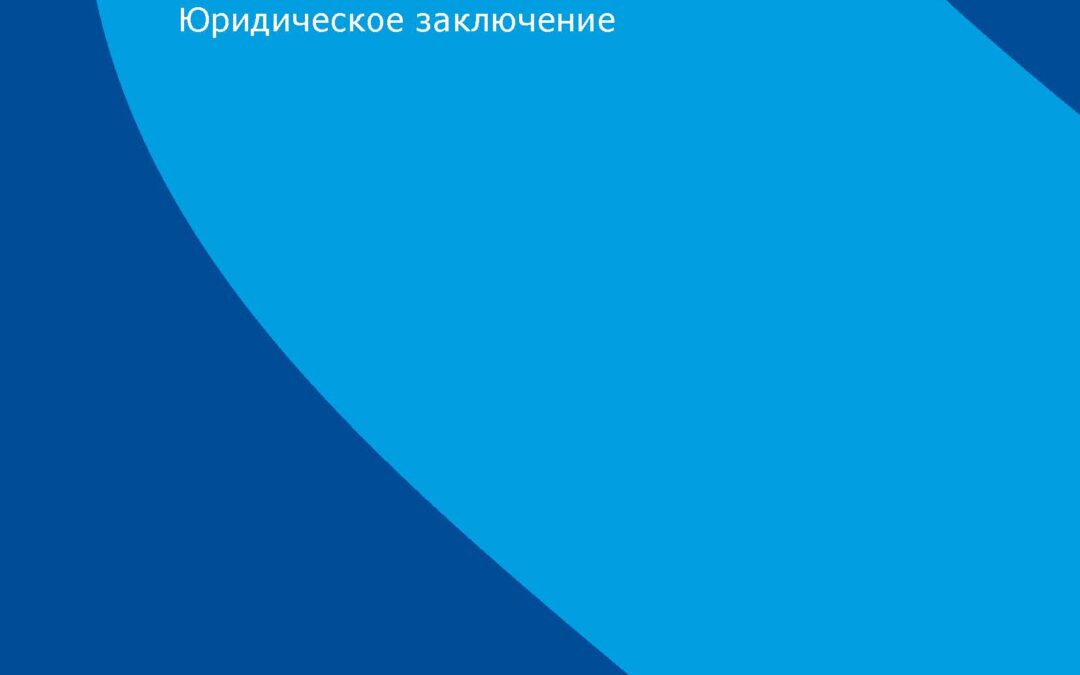
Jul 4, 2019 | News, Publications, Reports, Trial observation reports
In a legal opinion issued today analyzing the retrial of the Kyrgyz human rights defender Azimjan Askarov, which followed the UN Human Rights Committee finding of multiple human rights violations in his first trial, the ICJ concludes that these violations have not been remedied by the retrial.
In particular, the ICJ finds that the retrial did not effectively examine allegations of the torture of Askarov in detention. It failed to conduct new investigations, hear new witnesses or question the elements on which the initial conviction was based. As a result, the retrial did not respect the presumption of innocence or comply with the requirements of a fair trial.
As a consequence, Azimjan Askarov’s conviction should be quashed and he should be released, the ICJ said.
“This analysis shows that despite years of court hearings, Azimjan Askarov has never been afforded a fair trial or an effective investigation into his allegations that he was tortured. We call on the Kyrgyz authorities to act on these findings and to quash his conviction and release him from detention. Without this, the decision of the UN Human Rights Committee will remain unimplemented ” said Róisín Pillay, ICJ Europe and Central Asia Director.
An investigation into allegations of torture and other violations of Askarov’s human rights should be launched, the ICJ concluded, and he should be accorded full reparations for violations of his human rights.
Background
Azimjan Askarov, a prominent human rights defender in the Kyrgyz Republic, was convicted on 15 September 2010 of complicity in the murder of a law enforcement officer, attempted complicity in hostage-taking, illegal possession of firearms, incitement of interethnic hatred, and organization of riots.
The ICJ has followed his case since the initial trial and Askarov’s eventual conviction – and identified multiple violations of his human rights in detention, trial and conviction in 2010.
In 2016, the UN Human Rights Committee (HRC) adopted Views in which it found violations of Askarov’s rights under the International Covenant on Civil and Political Rights (ICCPR). The HRC decided that Kyrgyzstan was to make full reparation to Askarov; take appropriate steps to immediately release him; quash his conviction and, if necessary, conduct a new trial in due compliance with fair trial guarantees.
Following the HRC decision, the Supreme Court of the Kyrgyz Republic remanded the case of Azimjan Askarov for retrial to the Chuy Regional Court due to new circumstances. The retrial took place from 4 October 2016 to 24 January 2017. The retrial proceeded without quashing the defendant’s conviction but with “resumption” of the proceedings in the case.
The ICJ legal opinion is based on the findings from the observation of a number of hearings before the Chuy Regional Court and analysis of documents in the case. It assesses the proceedings in light of Kyrgyzstan’s domestic law as well as relevant international law and standards. The opinoin is signed on behalf of the ICJ by ICJ Commissioners Justice Azhar Cachalia, Judge of the Supreme Court of Appeal of South Africa; Justice Nicolas Bratza, former President of the European Court of Human Rights, Professor Juan Mendez, former UN Special Rapporteur on Torture and Other Cruel, Inhuman and Degrading Treatment or Punishment.
The full text of the legal opinion is available below.
In English: Kyrgyzstan-Askarov report II-Publications-Reports-Trial observation report-2019-ENG
In Russian: Kyrgyzstan-Askarov report II-Publications-Reports-Trial observation reports-2019-RUS
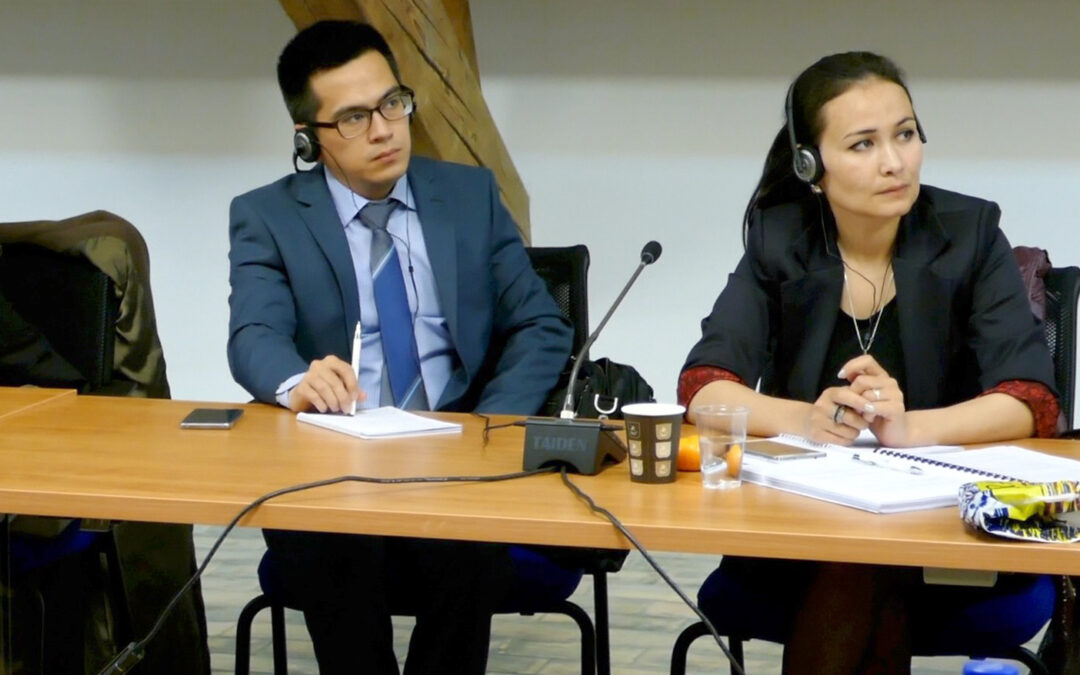
May 19, 2017 | Multimedia items, News, Video clips
Zainab Kistabayeva, Iuliia Votslava, Shoira Sobirova and Daniyar Kanafin, four lawyers who have been trained at the Programme, and ICJ’s Legal Adviser Temur Shakirov, talk about this recent event.
Temur Shakirov
Zainab Kistabayeva
Iuliia Votslava
Shoira Sobirova
Daniyar Kanafin
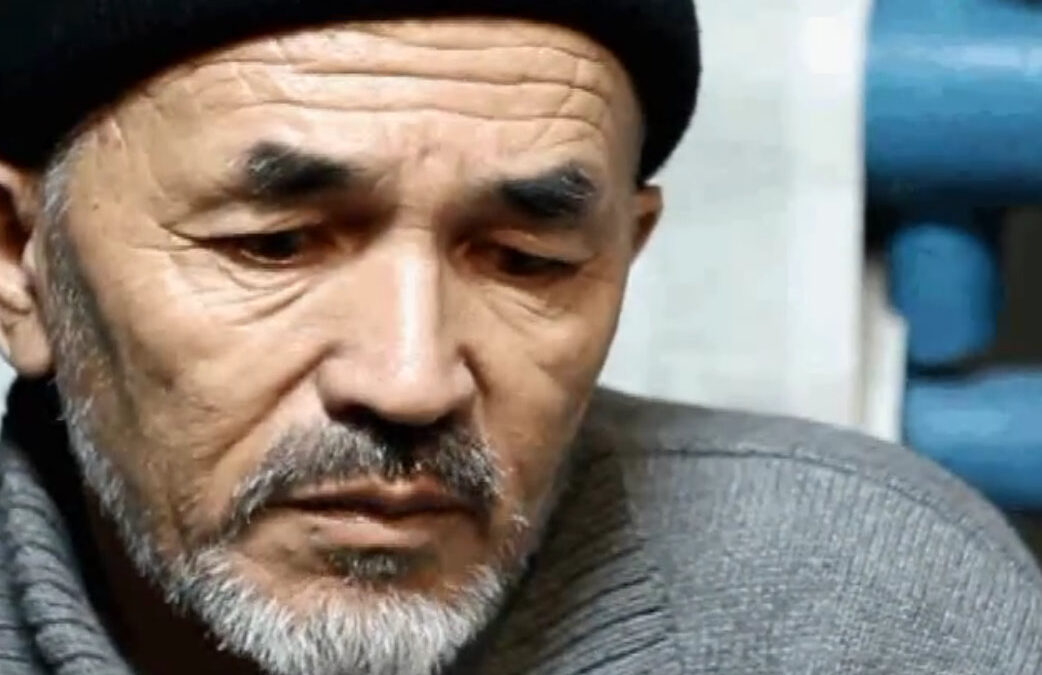
Jan 25, 2017 | News
The decision by the Chuy Regional Court of Kyrgyzstan on 24 January 2017 to uphold the life sentence of human rights defender Azimzhan Askarov constitutes a miscarriage of justice, and has compounded the multiple violations of his human rights, the ICJ said today.
The Court ruling was made in defiance of a decision of the UN Human Rights Committee, which had affirmed these serious violations.
The ICJ calls on the authorities of the Kyrgyz Republic to respect its international human rights obligations in this case.
Azimzhan Askarov (photo) should have access to an immediate and effective appeal against the decision of the Chuy Regional Court.
Violations of his rights should be remedied and just compensation provided.
Azimzhan Askarov was convicted of participation in murder, organization of mass disturbances and incitement to ethnic hatred and sentenced to life imprisonment in 2011, following an unfair trial, arbitrary detention and torture.
The re-hearing of the case before the Chuy Regional Court followed the findings of the UN Human Rights Committee that his arrest, detention and trial breached Kyrgyzstan’s legal obligations under the International Covenant on Civil and Political Rights (ICCPR), including the prohibition on torture or other ill-treatment, the prohibition on arbitrary detention, and the right to fair trial.
The ICJ has closely monitored the case. Representatives of the ICJ observed several court hearings, including during the re-examination.
The ICJ regrets that the re-examination of Azimzhan Askarov’s case did not remedy the violations of his human rights found by the Human Rights Committee.
The court failed to undertake a rigorous study of both defence and prosecution cases.
Rather, it appeared to take the prosecution case at face value, thus undermining the presumption of innocence and the principle of equality of arms.
Many motions of the defence remained unaddressed or were rejected without cause.
These included a motion asking that the findings of the UN Human Rights Committee be evaluated by the Court, as they were crucial for the re-opening the case by the Supreme Court.
The Chuy Regional Court not only failed to examine the findings of the Human Rights Committee, but summarily rejected the Committee’s findings that Azimzhan Askarov had been arbitrarily arrested, held in inhumane conditions and subjected to torture.
The Court in its decision doubted the truth of Azimzhan Askarov’s statement that he had been repeatedly tortured, on the basis that three State psychiatrists concluded that he was “deceitful and subservient” and the defence had not produced witnesses or other evidence to rebut this point.
The Court heard several witnesses who stated that they had initially given false statements implicating Azimzhan Askarov because they were intimidated or subjected to ill-treatment.
The Court did not take any action to investigate these allegations.
During the re-examination of his case Azimzhan Askarov was kept in a metal cage and had no immediate opportunity to speak without hindrance with his lawyer.
Askarov, an Uzbek speaker, visibly struggled to speak in Kyrgyz, but no interpretation was provided for him.
Background
Azimzhan Askarov, a prominent human rights defender, was convicted of murder and incitement to ethnic hatred and sentenced to life imprisonment in December 2011.
The central charges concerned allegations of his participation in a murder of Myktybek Sulayamanov, a police officer, during the 2010 ethnic clashes in the South of Kyrgyzstan.
The ICJ observed the appeal hearing in the case before the Supreme Court on 20 December 2011.
Based on the results of the mission as well as the documents of the case, the ICJ published a detailed report on the arrest, detention and trial of Azimzhan Askarov.
In March 2016, the UN Human Rights Committee issued a decision in regard to Askarov’s complaint and found violations of Articles 7 (freedom from torture), Article 9 (prohibition of arbitrary detention); Article 10 (right to humane treatment in detention), Article 14 (right to a fair trial) of the International Covenant on Civil and Political Rights.
The Human Rights Committee, which in March 2016 heard a complaint brought by Askarov, called for his conviction to be quashed and if necessary a new trial to be held in line with the principles of fair trial, presumption of innocence and other procedural safeguards.
On 12 July 2016, the Supreme Court ordered a further reconsideration of the case on appeal, which resulted in upholding Askarov’s verdict and sentence.
Following the decision of 24 January, the defence said they would appeal this decision of the Chuy Court in the Supreme Court of the Kyrgyz Republic. Kyrgyzstan is a party to the ICCPR and as such is bound by this treaty to guarantee the rights it enshrines and to provide effective remedies when these rights are violated.
The decision of the Committee is an authoritative interpretation of the ICCPR which may serve as evidence in court and whose findings should not be ignored.
Kyrgyzstan-Askarov-failure to remedy-News-Web story-2017-RUS (full text in Russian, PDF)
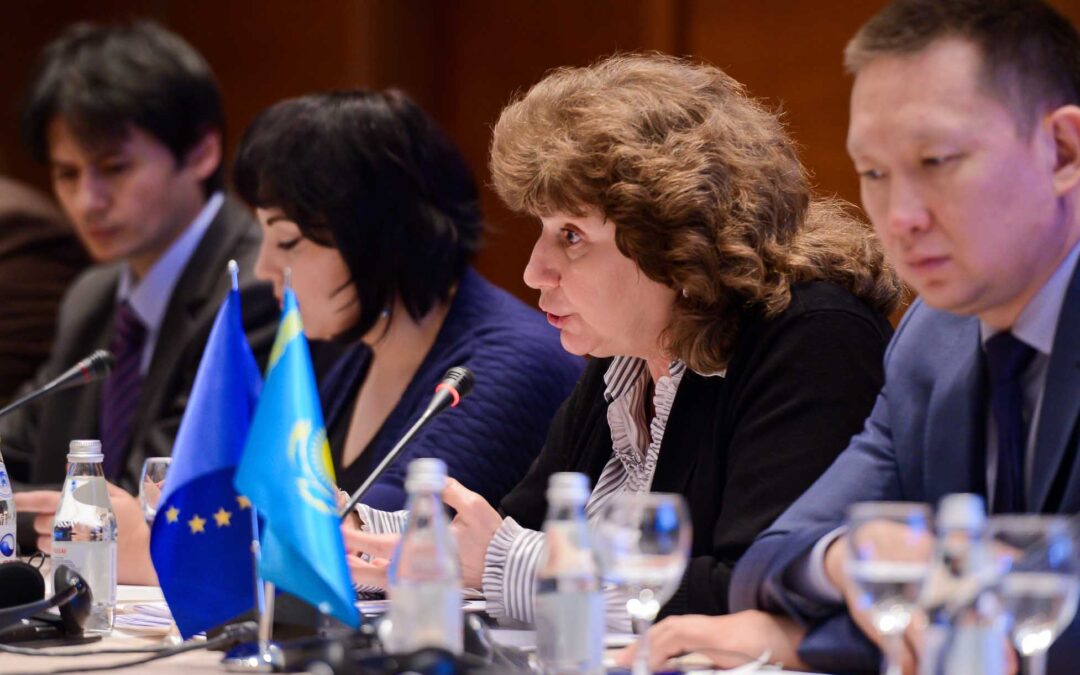
Nov 5, 2016 | News
Today the ICJ, in partnership with the National Collegium of Advocates of Kazakhstan, hosts a major regional conference in Almaty, Kazakhstan, on the role and independence of the legal profession in Central Asia.
Bringing together bar associations and lawyers from across Central Asia, as well as representatives of bar associations from European countries and international experts, the conference explores how associations of lawyers can strengthen the role of lawyers in the justice system.
Participants will discuss the organization and self-governance of the profession in each of the countries of Central Asia; will analyse the obstacles lawyers face in protecting the rights of their clients; and will debate standards and good practices in protecting the integrity of the profession through codes of ethics, disciplinary proceedings and professional training.
“Across Central Asia, every day, lawyers do vital work to protect the human rights of their clients. But they can only do this effectively when their independence is protected in law and in practice, and when high ethical and professional standards are enforced by self-governing associations of lawyers.” said Róisín Pillay, Director of the ICJ Europe and CIS programme
“At a time when the organization of the profession is being renewed in several countries of the region, this conference aims to ensure that lawyers work together to learn from each others’ experiences, and from international law and standards, to strengthen associations of lawyers in upholding the vital role of the profession,” she added.
Download the agenda in English and Russian here:
central-asia-agenda-conference-legal-prof-news-web-stories-2016-rus-eng (in PDF)
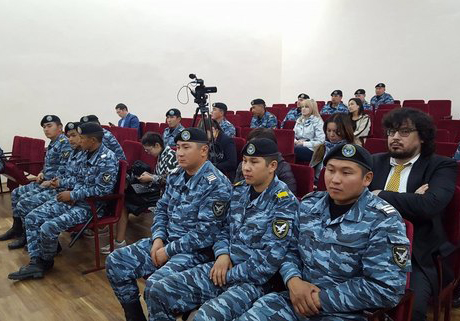
Oct 11, 2016 | News
Today, the ICJ observed a hearing in the case of Azimzhan Askarov, a prominent human rights defender in Kyrgyzstan, convicted in 2011 of murder and incitement to ethnic hatred, after an unfair trial, and sentenced to life imprisonment.
Azimzhan Askarov is appealing against his conviction following a decision of the UN Human Rights Committee.
The Chuy Court began the appeal hearing in the case on 4 October, following the findings of the UN Human Rights Committee that Azimzhan Askarov’s arrest, detention and trial violated the International Covenant on Civil and Political Rights (ICCPR), including the prohibition on torture or other ill-treatment, the prohibition on arbitrary detention, and the right to fair trial.
As a result, the Supreme Court ordered a reconsideration of the case earlier this year.
At today’s hearing a witness who was Askarov’s former cellmate confessed that he beat Askarov up in detention, which is the first time that direct testimony about Askarov’s torture or other ill-treatment has been presented to the Court.
Previously such allegations were refuted by the prosecution.
The next hearing is scheduled for 18 October. The ICJ will continue monitoring the case in future hearings.
Contact
Róisín Pillay, e: roisin.pillay(a)icj.org
Dmitry Nurumov, e: dmitry.nurumov(a)icj.org
Background
Azimzhan Askarov, a prominent human rights defender, was convicted of murder and incitement to ethnic hatred and sentenced to life imprisonment in December 2011.
The charges concerned allegations of his participation in a murder of Myktybek Sulayamanov, a police officer, during the 2010 ethnic clashes in the South of Kyrgyzstan.
The ICJ observed the appeal hearing in the case before the Supreme Court on 20 December 2011.
Based on the results of the mission as well as the documents of the case, the ICJ published a detailed report on the arrest, detention and trial of Azimzhan Askarov.
In March 2016, the UN Human Rights Committee issued a decision in regard to Askarov’s complaint and found violations of Articles 7 (freedom from torture), Article 9 (prohibition of arbitrary detention); Article 10 (right to humane treatment in detention), Article 14 (right to a fair trial) of the International Covenant on Civil and Political Rights.
On 12 July 2016, the Supreme Court ordered a further reconsideration of the case on appeal.
The Chuy Regional Court is currently considering the case.
kyrgyzstan-askarov-trial-obs-news-web-story-2016-rus (full story in Russian, PDF)









